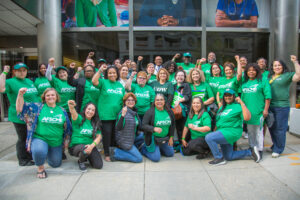
UDW rallies in Washington D.C.
Speaking before a crowd at the Care Can’t Wait rally in Washington, DC, home care provider Sabrina Bishop from San


Speaking before a crowd at the Care Can’t Wait rally in Washington, DC, home care provider Sabrina Bishop from San
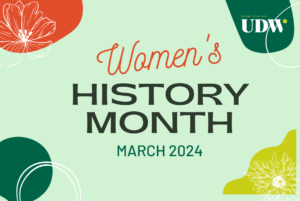
March was Women’s History Month, and as a union made up mostly of women, every year we celebrate and uplift
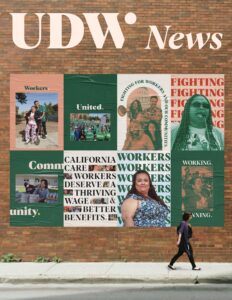
Table of Contents UDW Launches New Look and Statewide Public Awareness Campaign Fighting for IHSS Wage Increases Across CA What

SACRAMENTO – UDW/AFSCME Local 3930, a union representing over 170,000 home care workers and family child care providers in California,

Table of Contents: Our Union, Our Victories, Our Benefits 2023 August to October Highlights Big news! IHSS providers are getting

Statement from Doug Moore, Executive Director, United Domestic Workers (UDW/AFSCME Local 3930): Yesterday, the Monica Montgomery Steppe campaign celebrated a
Thanks to our strength at the state capitol, on January 1 IHSS providers will get a $.50 wage increase when
Dear Fellow UDW members,Happy Provider Appreciation Month! Every year we take time during the month of November to celebrate and
UDW and California CommunityColleges PartnershipIn September, UDW Executive Director Doug Moore and California Community Colleges Chancellor Dr. Sonya Christian united
In this issue we’re celebrating some of the member benefits, legislative wins, and collaborative partnerships our union has undertaken to
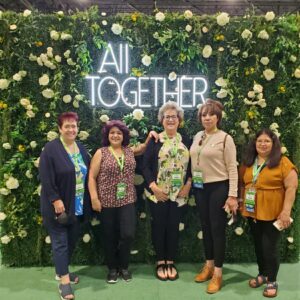
The legacy and work of our union isn’t just carried by our founders or our leaders, but by our members

SAN DIEGO – UDW Executive Director Doug Moore released the following statement on the appointment of Laphonza Butler to U.S.
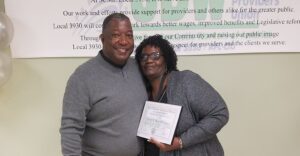
UDW member and activist Ms. Terry Walker-Dampier passed away earlier this month after a long battle with cancer. A UDW
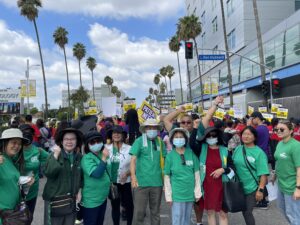
This Labor Day, UDW members from Riverside and Orange Counties rallied alongside union siblings from across Southern California to demand safe staffing at Kaiser Permanente hospitals.
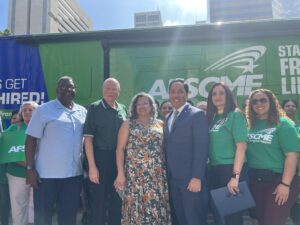
UDW members and leaders joined our parent union, AFSCME, for a stop in San Diego yesterday on their nationwide “Staff the Front Lines” tour.
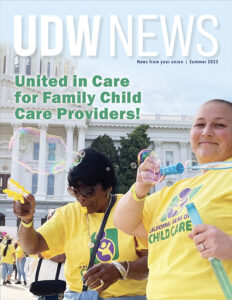
Table of Contents: Letter from Editha: Fighting for Better IHSS Wages and Benefits WE DID IT! United in care for

Good news for my fellow IHSS providers!Thanks to our determination and hard work, lawmakers passed a state budget that moves
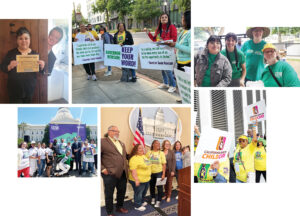
APRIL – Family child care providers captured a snapshot of their lives with special guest, “Flat Newsom”, and delivered pictures
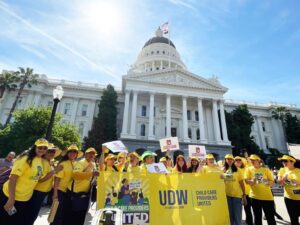
This June, more than 2,000 family child care and home care providers took to the streets of Sacramento to demand

Families of four with incomes of up to $96,300 are eligible for subsidized child care, under new state income limits,
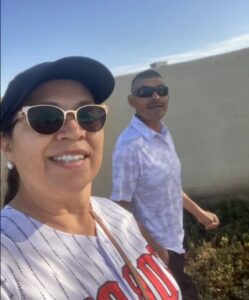
Laura Flores became a caregiver when she least expected it. Her love, dedication, and attention changed the life of a